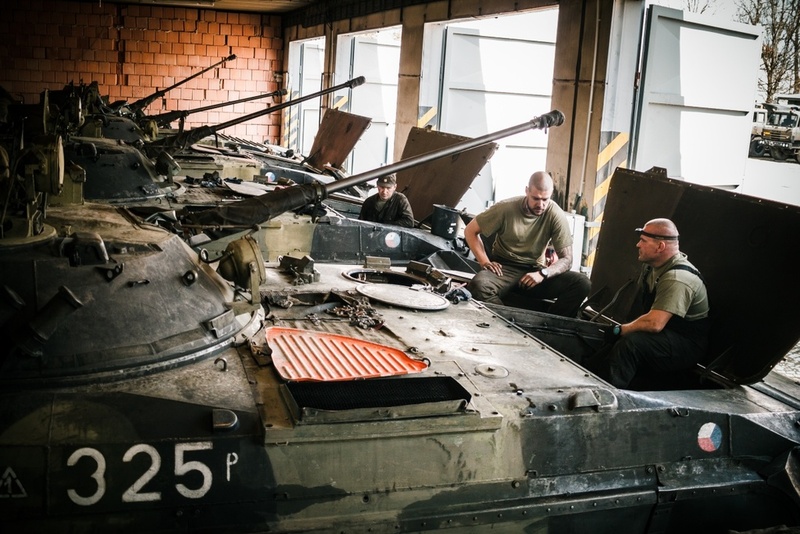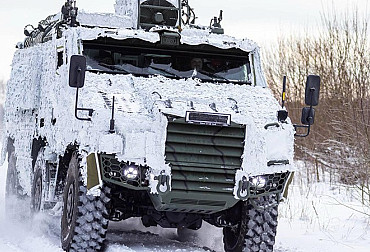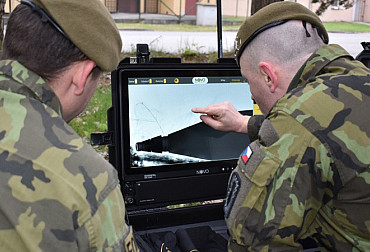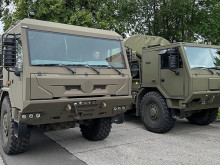Army requests service and maintenance of BVP-2 until 2025
The purpose of the recently announced tender is to ensure the full functionality and operability of the equipment on the IFV chassis used in the Army of the Czech Republic on the basis of a framework agreement and to ensure the full combat capability of the units of the Czech Armed Forces on the territory of the Czech Republic and in foreign operations. Repairs and maintenance are planned to be carried out from 2022 to 2025 and will cost CZK 80 million including VAT.
The BVP-2 Infantry Fighting Vehicles in their current form are expected to serve in the Czech Armed Forces for several more years. It is then a question of how spare parts, for example, will be available in the future. In May this year we asked (full interview here) the press information officer of the 71st Mechanised Battalion, Capt. Radek Hampl, what is the situation in the supply of spare parts for the BVP-2 and whether there are enough of them even if the purchase of new IFVs is delayed. The answer of Capt. Hampl's answer was as follows:
"The situation with spare parts is quite sustainable so far. At least as far as the main ones are concerned, such as running wheels etc. We are the last brigade on the BVP and there are still plenty of basic supplies in the warehouses from before, but even these are dwindling.
The problems are then more with special vehicles, such as the BVP-VPV (tracked recovery vehicle), or some of the upgraded vehicles and their modifications with special superstructures, of which there are few in the army. The special equipment that these vehicles have is not in the army's inventory and is no longer available in the civilian sector, making their repair very expensive and time-consuming.
Some parts have to be manufactured by specialist companies. I do not know what the actual stocks in the army depots are. However, most spare parts are unavailable. All repairs are carried out in limited quantities precisely because of the non-availability of spare parts."
 Picture: The purpose of the recently announced tender is to ensure the full functionality and operability of the equipment on the chassis of BVP used in the Czech Army and thus ensure the full combat capability of the Czech Army units on the territory of the Czech Republic and in foreign operations | Ministry of Defence of the Czech Republic
Picture: The purpose of the recently announced tender is to ensure the full functionality and operability of the equipment on the chassis of BVP used in the Czech Army and thus ensure the full combat capability of the Czech Army units on the territory of the Czech Republic and in foreign operations | Ministry of Defence of the Czech Republic
The above-mentioned tender requests services in the field of provision of repair and maintenance of military equipment on the chassis of the BVP of the Army of the Czech Republic, including their parts or accessories. The subject matter of the performance of the sub-procurement contracts awarded on the basis of the concluded framework agreement will be the provision of the following services:
- vehicle inspections (defects)
- routine repairs of vehicles in accordance with CSN 300033 'Nomenclature for the operation, maintenance and repair of road vehicles for motor transport', including statutory revisions of specified technical equipment
- rectification of specified defects
- replacing or revising components in the spare parts and accessories kit in the event of wear or damage (does not apply to missing components)
- routine repairs of separate groups and subgroups and spare parts for the equipment in question, according to the supplier's technical documentation, prepared in accordance with the documentation of the manufacturer of the UAV, in compliance with all generally applicable regulations
The prospective supplier must then prove its qualifications by having provided significant services in the last 5 years in the field of securing and carrying out at least 5 repairs of equipment on the chassis of the BVP and each repair was carried out with a financial volume of at least CZK 500 000 excluding VAT.
The service shall be provided on a continuous basis from 1 January 2022 and the performance shall be completed by 30 November 2025 at the latest. The prices for the services of the framework agreement shall not exceed a total financial volume of CZK 80 000 000 including VAT.
It should be recalled that on 5 November the Ministry of Defence announced that an expert committee had completed the evaluation of the bids for the delivery of 210 tracked Infantry Fighting Vehicles (IFVs) from 1 September this year from three potential suppliers, i.e. BAE Systems with the CV90 vehicle, GDELS with the ASCOD vehicle and Rheinmetall Landsysteme with the Lynx vehicle. The unanimous decision of the committee was then that "The tenders of all three tenderers are not evaluable on the basis of the responses/submissions submitted, as none of them meet all the requirements of the contracting authority. The deficiencies identified relate, for example, to missing or inaccurate information on the technical characteristics of the vehicles offered or incomplete information on cooperation with the Czech defence industry. The original deadline for signing the contract for the delivery of the armoured vehicles was planned for 2019.
"Of the strategic modernisation projects launched, this is the only one that failed to conclude a contract before the elections. There are several reasons for the delay, the main ones being the reduction of the MoD budget and the impossibility of personal negotiations and postponement of the tests of the offered BVPs due to the covid-19 pandemic. Even so, the project has managed to reach an advanced stage and the new leadership of the ministry should decide what the next steps will be," Jan Pejšek, director of the MoD's communication department, told our magazine.
The new management of the Ministry of Defence will decide on the further solution of the situation regarding the purchase of new IFV for the Czech Armed Forces. In any case, the new leadership of the ministry should keep in mind that new IFVs for our 7th Mechanised Brigade need to be purchased as soon as possible, as the existing BVP-2 Infantry Fighting Vehicles are already obsolete and totally insufficient for the performance of the "heavy brigade".
"I don't have to explain to any of you that the old BVPs belong to the scrap heap," emphasised the Chief of the General Staff of the Czech Army, Army General Ales Opata, at this year's commanders' assembly. However, even this equipment, until it is replaced by new ones, must still serve and perform its tasks. This is even more true for the 71st Mechanised Battalion in hranice, which is still assigned to the NATO Rapid Reaction Force and must be prepared for possible deployment with fully combat-ready equipment. However, this costs considerable effort.





















